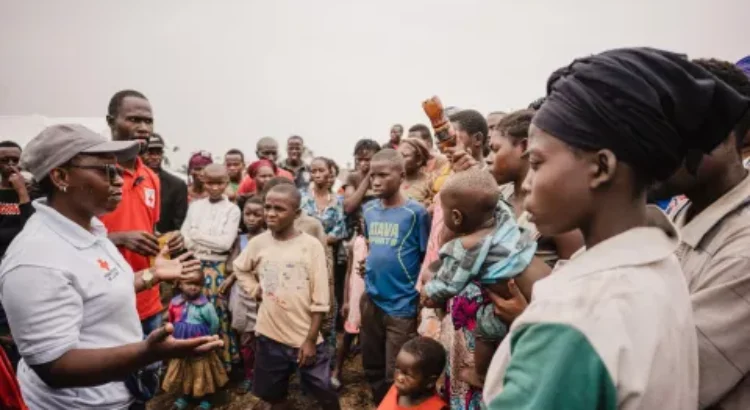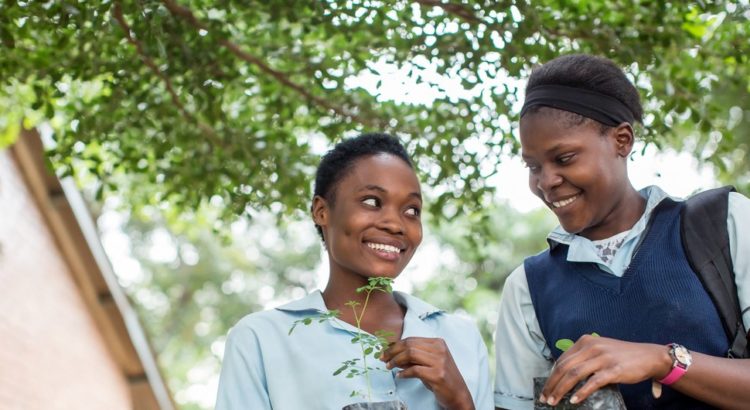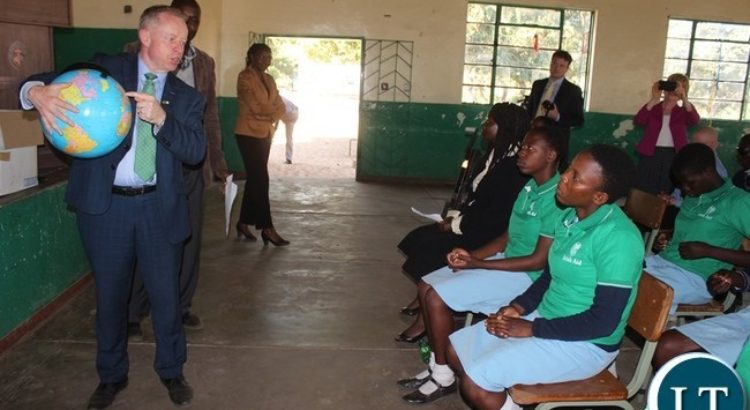Millones de personas corren riesgo de contraer el cólera debido a la falta de agua potable, jabón e instalaciones sanitarias, y a la escasez de vacuna contra el cólera
El Grupo Internacional de Coordinación (GCI) para el Suministro de Vacunas pide que se aceleren urgentemente las medidas que salvan vidas
GINEBRA/NUEVA YORK, 20 de marzo de 2024 – Se necesitan medidas inmediatas para frenar un aumento sin precedentes de varios años de casos de cólera en todo el mundo, según el Grupo Internacional de Coordinación (GCI) para el Suministro de Vacunas. Las acciones incluyen invertir en acceso a agua potable, saneamiento e higiene, realizar pruebas y detectar brotes rápidamente, mejorar la calidad y el acceso a la atención médica y acelerar la producción adicional de dosis asequibles de vacuna oral contra el cólera (OCV) para prevenir mejor los casos.
El ICG gestiona las reservas mundiales de vacunas contra el cólera. El grupo incluye la Federación Internacional de Sociedades de la Cruz Roja y de la Media Luna Roja, Médicos Sin Fronteras, UNICEF y la OMS. Gavi, la Alianza para las Vacunas, financia la reserva de vacunas y la entrega de OCV. Los miembros del ICG hacen un llamado a los gobiernos, donantes, fabricantes de vacunas, socios y comunidades a unirse en un esfuerzo urgente para detener y revertir el aumento del cólera.
El cólera ha ido aumentando a nivel mundial desde 2021, con 473 000 casos notificados a la OMS en 2022, más del doble de los notificados en 2021. Los datos preliminares para 2023 revelan nuevos aumentos, con más de 700 000 casos notificados. Varios de los brotes tienen altas tasas de letalidad, superando el umbral del 1% utilizado como indicador para el tratamiento temprano y adecuado de los pacientes de cólera. Estas tendencias son trágicas dado que el cólera es una enfermedad prevenible y tratable y que los casos habían ido disminuyendo en años anteriores.
El cólera es una infección intestinal aguda que se propaga a través de alimentos y agua contaminados con heces que contienen la bacteria Vibrio cholerae . El aumento del cólera se debe a las persistentes brechas en el acceso al agua potable y al saneamiento. Aunque se están haciendo esfuerzos para cerrar estas brechas en algunos lugares, en muchos otros están aumentando, impulsadas por factores relacionados con el clima, la inseguridad económica, los conflictos y el desplazamiento de población. El agua y el saneamiento gestionados de forma segura son requisitos previos para detener la transmisión del cólera.
Actualmente, los países más afectados son la República Democrática del Congo, Etiopía, Haití, Somalia, Sudán, Siria, Zambia y Zimbabwe.
Ahora más que nunca, los países deben adoptar una respuesta multisectorial para luchar contra el cólera. Los miembros del ICG hacen un llamado a los países actualmente y potencialmente afectados a tomar medidas urgentes para garantizar que sus poblaciones tengan acceso a agua potable, servicios de higiene y saneamiento, y a la información crítica para prevenir la propagación del cólera. El establecimiento de estos servicios requiere voluntad política e inversión a nivel nacional. Esto incluye crear capacidad para la detección y respuesta tempranas, una mejor detección de enfermedades, un acceso rápido al tratamiento y la atención, y trabajar en estrecha colaboración con las comunidades, incluso en la comunicación de riesgos y la participación comunitaria.
La grave brecha en el número de dosis de vacunas disponibles, en comparación con el nivel de necesidad actual, ejerce una presión sin precedentes sobre las reservas mundiales de vacunas. Entre 2021 y 2023, se solicitaron más dosis para responder al brote que durante toda la década anterior.
En octubre de 2022, la actual escasez de vacunas obligó al ICG a recomendar una sola dosis de vacuna, en comparación con un régimen anterior de dos dosis de larga data. El año pasado se produjeron aproximadamente 36 millones de dosis, mientras que 14 países afectados registraron una necesidad de 72 millones de dosis para una estrategia reactiva de una sola dosis. Estas solicitudes subestiman la verdadera necesidad. Las campañas de vacunación preventiva han tenido que retrasarse para preservar dosis para los esfuerzos de control de brotes de emergencia, creando un círculo vicioso. El cambio de estrategia permitió que las vacunas disponibles protegieran a más personas y respondieran a más brotes de cólera en medio de la actual escasez de suministro, pero un retorno a un régimen de dos dosis y la reanudación de la vacunación preventiva proporcionarían una protección más prolongada.
Se pronostica que la capacidad de producción mundial en 2024 será de 37 a 50 millones de dosis, pero probablemente seguirá siendo inadecuada para satisfacer las necesidades de millones de personas directamente afectadas por el cólera. Actualmente, sólo un fabricante, EuBiologics, produce la vacuna; Si bien la empresa hace todo lo posible para maximizar la producción, se necesitan más dosis. Actualmente, no se espera que nuevos fabricantes se incorporen al mercado antes de 2025; deben acelerarse. La misma urgencia e innovación que vimos con la COVID-19 deben aplicarse al cólera.
Los fabricantes adicionales que planean ingresar al mercado deben acelerar sus esfuerzos y ofrecer dosis a precios asequibles.
Hacemos un llamado a los fabricantes de vacunas, gobiernos, donantes y socios para que prioricen un aumento urgente de la producción de vacunas e inviertan en todos los esfuerzos necesarios para prevenir y controlar el cólera.
Fuente de la Información: https://www.unicef.org/press-releases/millions-risk-cholera-due-lack-clean-water-soap-and-toilets-and-shortage-cholera














 Users Today : 41
Users Today : 41 Total Users : 35459947
Total Users : 35459947 Views Today : 47
Views Today : 47 Total views : 3418512
Total views : 3418512